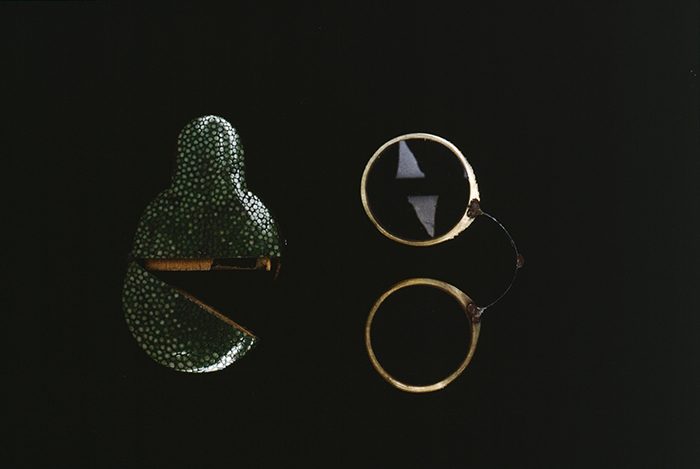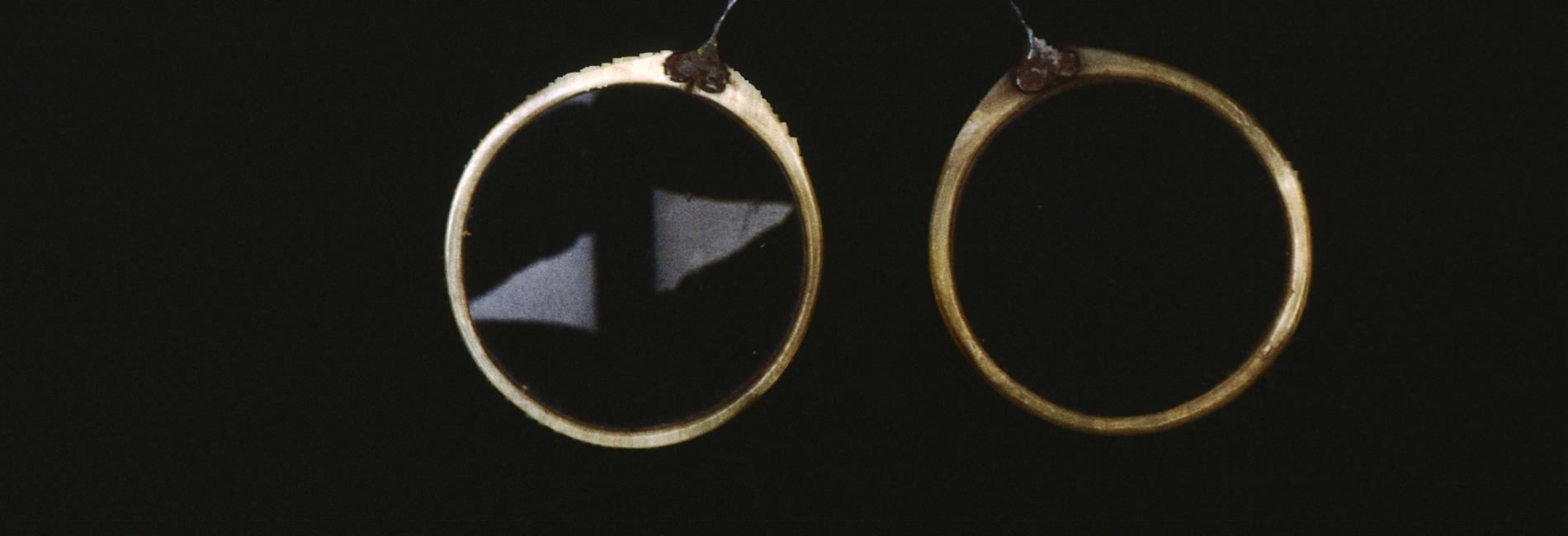What can a pair of eighteenth-century spectacles, or eyeglasses, tell us about evolving attitudes to disability?
These spectacles, now in the collection of the Whipple Museum of the History of Science, were handmade. They were designed to sit on the wearer's nose, and then fold away neatly into their case.
Would you think of them as a disability aid? How have attitudes to disability changed over time?
Meg Roberts, doctoral researcher at the Faculty of History at the University of Cambridge and volunteer tour guide for the Bridging Binaries LGBTQ+ tour project at the Whipple Museum, tells us more.
More information
Image of the spectacles and their case

From the Whipple Museum's Collections Database
Accession No: 0020
Name: Spectacles, case
Brief description: Folding nose spectacles in banjo style case, 1750-1800
Earliest date: 1750
Latest date: 1800
Origin: Almost certainly English
Material: Organic (horn), metal (steel), fishskin (shagreen); glass; wood; cloth (velvet)
Purchased by Robert Stewart Whipple in Folkestone in 03/1922.


